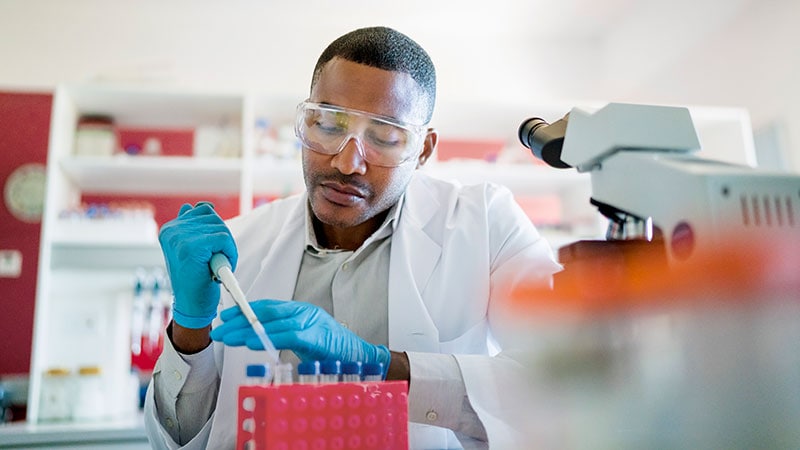Low Germline Testing Rates for Cancer Patients Revealed
Kernkonzepte
Germline genetic testing for cancer patients is underused, especially among racial and ethnic minorities.
Zusammenfassung
The content discusses the underuse of germline genetic testing in cancer patients, highlighting the implications and recommendations for improving testing rates.
Key Highlights:
Only 6.8% of newly diagnosed cancer patients undergo germline genetic testing.
Testing rates are even lower among racial and ethnic minorities.
Germline genetic testing can impact cancer care and identify candidates for targeted therapies.
Recommendations include innovative care delivery strategies to increase testing rates.
The study analyzed data from over 1.3 million individuals across two US states.
Results suggest a missed opportunity to reduce the population-level burden of cancer.
Huge Underuse of Germline Testing for Cancer Patients
Statistiken
Fewer than 7% of patients newly diagnosed with cancer are tested for germline genetic mutations.
Germline genetic testing was performed in 93,052 (6.8%) of patients over the study period.
The number of genes for which testing was conducted increased from a median of two in 2013 to 34 in 2019.
Zitate
"Clinicians should recommend testing to their patients and provide them with the information necessary to make informed decisions about whether to undergo testing." - Zsofia K. Stadler, MD
"We need increased awareness and access to genetic testing resources for patients with breast cancer, particularly for racial and ethnic minorities." - Erin Frances Cobain, MD
Wichtige Erkenntnisse aus
by Liam Davenpo... um www.medscape.com 06-07-2023
https://www.medscape.com/viewarticle/992869
Tiefere Fragen
How can healthcare systems address the disparities in germline genetic testing among different racial and ethnic groups?
Healthcare systems can address the disparities in germline genetic testing among different racial and ethnic groups by implementing targeted outreach and education programs. This can involve raising awareness about the importance of genetic testing in cancer care within these communities, providing culturally sensitive information, and offering genetic counseling services in multiple languages. Additionally, healthcare systems can work towards improving access to testing facilities in underserved areas and ensuring that testing is covered by insurance to reduce financial barriers. Collaborating with community organizations and leaders can also help in building trust and increasing participation in genetic testing among diverse populations.
What role can policymakers play in promoting wider access to genetic testing for cancer patients?
Policymakers can play a crucial role in promoting wider access to genetic testing for cancer patients by implementing policies that support coverage for genetic testing services. This can include advocating for insurance coverage of testing, ensuring that testing is included in standard care protocols, and providing funding for research and initiatives aimed at increasing access to genetic testing. Policymakers can also work towards reducing disparities in access by addressing issues related to cost, education, and awareness. By creating a supportive policy environment, policymakers can help ensure that all cancer patients have equal opportunities to benefit from genetic testing.
How might the integration of technology like chatbots impact the uptake of genetic testing in oncology clinics?
The integration of technology like chatbots in oncology clinics can have a significant impact on the uptake of genetic testing by providing patients with easy access to information and support. Chatbots can be used to answer common questions about genetic testing, provide guidance on the testing process, and offer resources for further information. By offering a convenient and user-friendly way for patients to learn about genetic testing, chatbots can help increase awareness and encourage more individuals to consider undergoing testing. Additionally, chatbots can assist in scheduling appointments, sending reminders, and following up with patients post-testing, thereby streamlining the testing process and improving overall patient experience. This integration of technology can help make genetic testing more accessible and convenient for patients, ultimately leading to higher uptake rates in oncology clinics.
0
